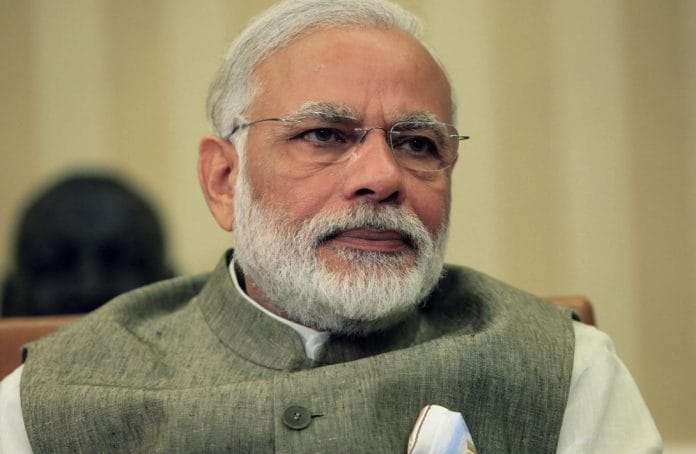Law made to retrieve money from bad debt is being used to loot public money.
The passing of the second amendment to the Insolvency and Bankruptcy Code (IBC) by the Lok Sabha on 31 July saw the opposition raise numerous objections. It has once again brought to the front the access that big businesses have to the current Narendra Modi government.
The IBC was introduced by the government in 2015 to create a unified framework for resolving insolvency and bankruptcy in India. It sought to put in a place a time-bound process and do away with the multitude of legislation and adjudicatory forums that plagued the process. The two subsequent amendments to the IBC were brought in through ordinances.
An ordinance is generally passed by a President when there is a need for immediate legislative action and Parliament is not in session. However, the nature of changes brought about by these ordinances and their timing points to crony capitalism.
Also read: Modi govt may push for mergers to tackle crisis in state-run banks
First, it is a matter of concern that both these ordinances, one in November 2017 and the other in June 2018, were passed just before the session of Parliament was about to commence and were quickly followed by Bills in that session. It goes without saying that a change to the IBC framework is not an issue that needs immediate action, especially not merely a month before Parliament was to reconvene for its session.
Second, both the amendments to the IBC affected numerous ongoing resolution processes. The first amendment, brought in through an ordinance on 27 November 2017, added a new provision to the law prohibiting certain persons from being a resolution applicant and submitting a resolution plan. These include wilful defaulters, those with loans classified as non-performing assets (NPAs) for at least a year along with many others. In addition to the specific criteria listed, it also disqualified any person connected to these entities.
This specifically hampered the resolution process of Essar Steel, where two bids belonging to a consortium of Russian lender VTB Bank, Rewant Ruia and ArcelorMittal were disqualified as they were related parties of the defaulting firm, as per the new provision. However, the same criteria were not applied in the case of Monnet Ispat and Energy, where a consortium of JSW Steel and AION Capital were able to successfully bid despite being related parties to defaulting firms.
The second amendment, which was passed by the Lok Sabha on 31 July, sought to replace an ordinance introduced on 6 June 2018. It changed voting thresholds for decisions taken by the Committee of Creditors. In the past, all decisions to be voted upon by the Committee of Creditors required the assent of 75 per cent of its members. However, this threshold was reduced to 66 per cent for important decisions. These important decisions included the approval of the resolution plan.
The timing of the ordinance and its nature were perfectly in line with the insolvency resolution process of Alok Industries. Prior to the ordinance, the single bidder, in this case, had proposed a resolution plan wherein it would pay Rs 5,000 crore against the total recoverable amount of Rs 30,000 crore. It placed the plan before the Committee of Creditors, but received the assent of only 70 per cent of its members and was not accepted. However, another meeting was called post the ordinance, wherein the same plan was accepted with the assent of 72 per cent of its members owing to the change in voting thresholds. Around 80 per cent of the loan of Ashok Industries was written off and bidders were able to acquire assets at a valuation much lower than the original valuation.
Also read: India set to have a star cast of bankrupt billionaires
The question which an analysis of these ordinances and subsequent amendments begs to ask is: whether they address the issues that the process deals with or is the government providing relief to big players on a case-to-case basis? The signs point to the latter, and the propagation of crony capitalism is not only harmful to the image of the nation but also to the economy.
The actual recoveries being made by banks are currently abysmal and the changes to the IBC will only enable further write-offs of large amounts. It promotes the nexus between promoters and banks to syphon off large sums, while the public loses its money at their expense. The law that was framed to retrieve money from bad debt is being used as a law to loot public money.
Gaurav Gogoi is a Member of Parliament [Lok Sabha] and Member of the Indian National Congress.
This article was written with assistance from Shefali Mehta.







Modi ji aap hamare liye ek aadrsh ho par
Hair cuts are a misnomer. Going bald, clean shaven appear closer to reality. Banks used to have a right to recompense under the earlier CDR, ie the banks were to be compensated for the losses from the future profits of the unit. Wasn’t successful, but that needs to be reintroduced in an effective manner.
Congres dealt public money as commission and all law setaside by vip champion os socialism and all cronies were acomodated and offered freebies against fund forparty and flattery culture ,34 laks crore forwared by mms sonia Chidu nexus shamefully become NPA having no lawto recover and scare defaulter congresi idiots kept sitting dithered all crisis being just spectator and talking nonsenses of cadte miority dividation with shameful lootof public money and cartel of judiciary judges media lutyens brigaes totally suported looter shamefully
Choksi+ Nirav Modi has in relationship with a giant corporate of India who has been since long artist to change law and rules in his favour.